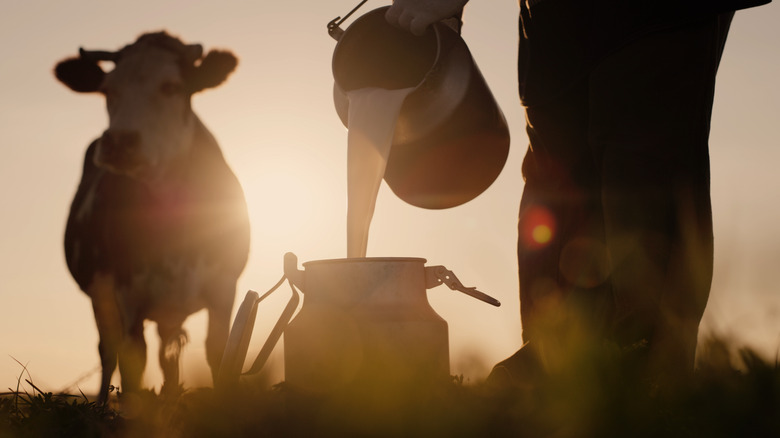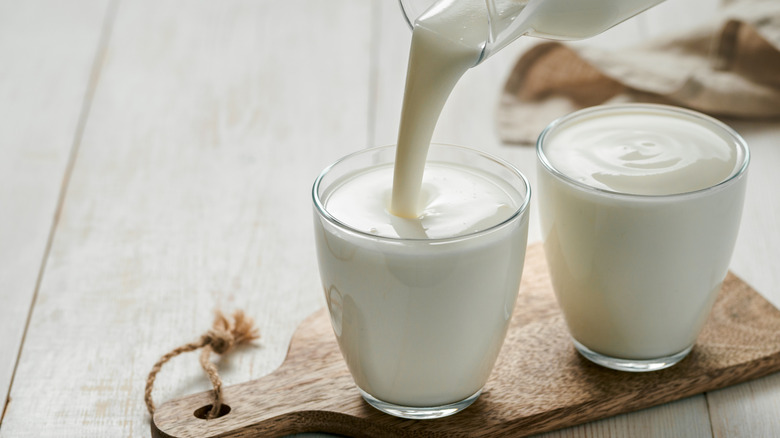Is It Safe To Drink Raw Milk?
Raw milk, which can come from cows, goats, sheep, or any other animal, has the reputation of not being safe to drink. After all, isn't there a reason for pasteurization? The milk you find in your grocery store is pasteurized through a heating process originally invented in the 1860s. It destroys pathogenic microorganisms that can cause disease, according to Britannica. These diseases can include listeriosis, typhoid fever, tuberculosis, and brucellosis, per the U.S. Food and Drug Administration (FDA).
Despite the potential harm of drinking raw milk, its consumption has only increased. According to a 2014 survey published in the journal Global Advances in Health and Medicine, the majority of people who consume raw milk believe it has more health benefits compared to pasteurized milk. However, government agencies and health organizations, such as the FDA, continue to warn that raw milk is not safe to drink. Despite the warnings, the results of a 2013 survey published in The Journal of Consumer Affairs found that 3.4% of people admitted to consuming unpasteurized milk at some point over the past 7 days. This indicates that while it may not be common, many are still choosing this form of milk.
Raw milk is generally unsafe to drink
According to a 2015 study published in Nutrition Today, pasteurization began to be implemented during a tuberculosis outbreak in Chicago in the early 1900s where 10% of all cases came from cow's milk. Many raw milk consumers claim that the beverage is safe to drink and that pasteurization destroys beneficial essential vitamins and minerals, compared to regulated milk. These health benefits, proposed by organizations such as the Weston A. Price Foundation, include curing allergies, improving digestion, and providing beneficial bacteria, according to Bon Appetit.
Raw milk has been linked to outbreaks of disease because of harmful bacteria, such as Salmonella and E. coli, according to the FDA. Between 1993 and 2012, 127 outbreaks were traced back to raw milk consumption. Eventually, this resulted in almost 2,000 illness reports and 144 hospitalizations (via the FDA). Because of the risk of illness, raw milk can be especially dangerous for people with weak immune systems, such as children, pregnant people, and senior citizens.
Raw milk has very few health benefits over pasteurized milk
Does raw milk have health benefits that pasteurized milk doesn't? In two words, not really. There is very little scientific research that supports the claims of raw milk drinkers.
Raw milk does not have significantly more vitamins and minerals than pasteurized milk. A 2011 review of dozens of studies looked at the levels of vitamins in raw milk. It found that pasteurization only resulted in very small losses of water-soluble vitamins B1, B6, B9, B12, and C. Furthermore, these vitamins are already at very low levels in raw milk and can be easily made up through the consumption of fruits and vegetables.
Finally, raw milk is not better for people with lactose intolerance. Raw and pasteurized milk contain similar amounts of lactose, a milk sugar, according to Healthline. Also, a 2014 study looked at 16 adults with lactose intolerance and compared their reaction to raw and pasteurized milk. The researchers found no differences in the ease of digestion between the participants.



